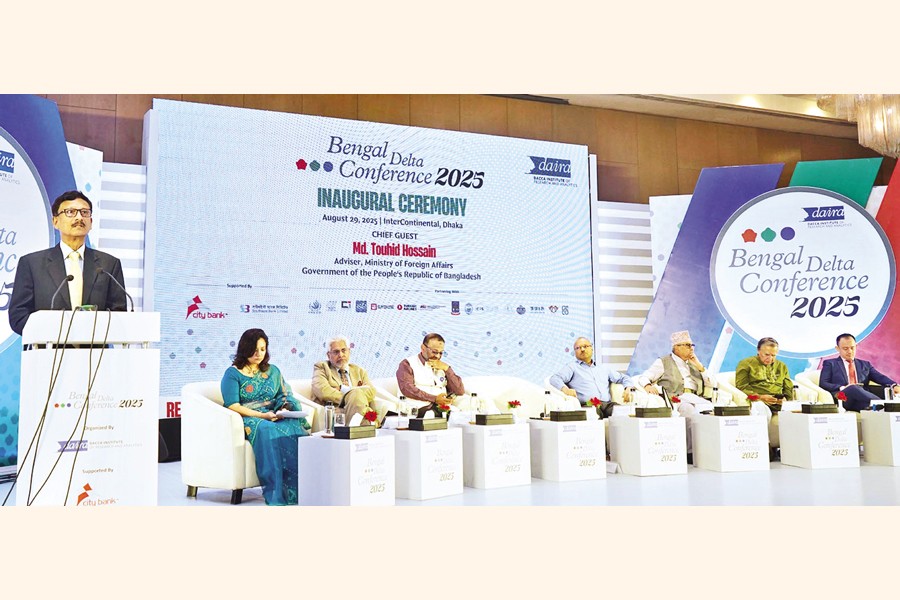
Published :
Updated :

The Rohingya crisis would become a regional problem in the coming years if not addressed, Foreign Affairs Adviser Md Touhid Hossain said on Friday.
"From the Bangladesh perspective, this is the biggest problem we have. There is no resolution within our sight," he said while addressing the Bengal Delta Conference 2025 as the chief guest.
The two-day event titled "Bangladesh at the Crossroads: Rethinking Politics, Economy, and Geopolitical Strategy" was organised by the Dacca Institute of Research and Analytics at a hotel in the capital.
Touhid said, "This is now a problem for Bangladesh. I can assure you this is not going to be a problem for Bangladesh only. If the situation goes on like this, this is going to become a regional problem in the next eight years."
Vice-Chancellor of Dhaka University Professor Dr Niaz Ahmed Khan, former Malaysian education minister Professor Dr Maszlee bin Malik, former Nepalese water resources minister Dipak Gyawali, founding editor of The Wire Siddharth Varadarajan, and editor of The Daily Star Mahfuz Anam spoke at the inaugural session as special guests.
The inaugural address was delivered by Mushtaq Khan, a professor of economics at the SOAS University of London.
In his speech, the foreign adviser said everyone initially thought the Rohingya issue would be solved within a couple of years as it had earlier happened in the last century.
But it had been eight years since the homeless people of neighbouring Myanmar were forced to enter Bangladesh, he said.
"Eight years have gone. Nothing has happened," he also said.
He noted that many of the Rohingya children coming to Bangladesh with their parents at the age of five to 10 had entered adolescence, while many had even passed that period.
Would these millions of children, especially boys, accept the nomadic life in the refugee camps where there was no hope and no light in the future, he asked.
They would challenge their conditions. When they would do that, it would be a big problem for Bangladesh as well as this part of Asia, the adviser said.
"So, this crisis must be resolved - not only in the interests of Bangladesh and the Rohingyas, but also as a regional and global problem."
Regarding the US's recent trade war, he said the tariffs "have put pressure on the economies of various countries."
"These tariffs have also brought about a big change in geopolitics," he added.
The inaugural session of the conference began with the airing of the national anthem. A minute of silence was also observed in memory of the July martyrs.
Mushtaq mentioned that the structure of the fascist government had not changed, which was a matter of disappointment.
But he said he was optimistic as Bangladeshi politicians understood that it was impossible to return to the old political arrangement.
Former Malaysian education minister Malik said Bangladesh could become a beacon of hope for the Global South.
He said Bangladesh needed to move towards a knowledge-based economy rather than relying on its labour-based one.
saif.febd@gmail.com


 For all latest news, follow The Financial Express Google News channel.
For all latest news, follow The Financial Express Google News channel.